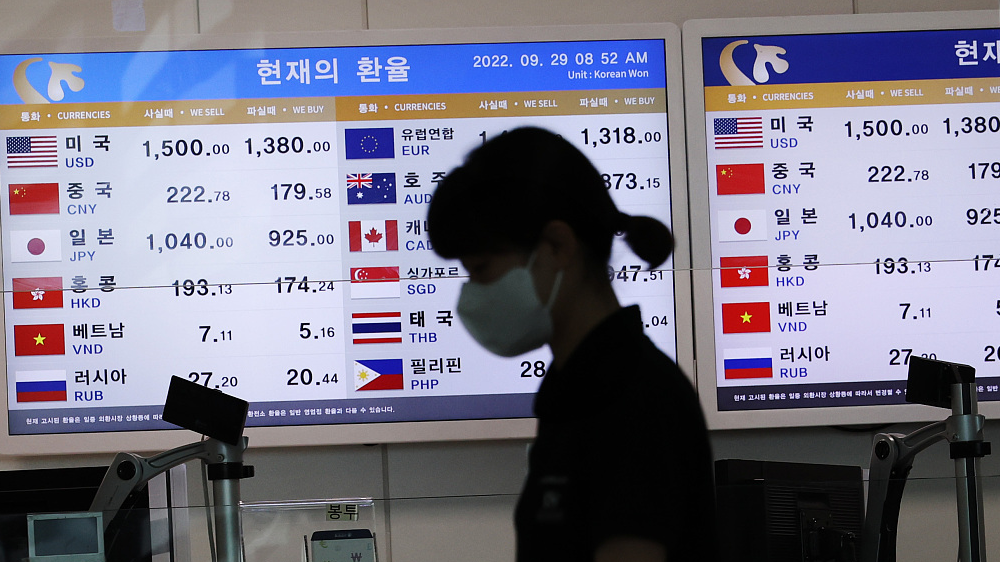
Foreign exchange prices are displayed at a bank exchange window inside Incheon International Airport as the South Korean won surged against the U.S. dollar, Seoul, South Korea, September 29, 2022. /CFP
Foreign exchange prices are displayed at a bank exchange window inside Incheon International Airport as the South Korean won surged against the U.S. dollar, Seoul, South Korea, September 29, 2022. /CFP
South Korea's foreign exchange reserves shrank by nearly $20 billion in September, the second-biggest monthly decrease on record, as authorities stepped up dollar-selling intervention to counter the won's slump to a low of over 13 years.
The biggest monthly fall on record was a $27.42 billion decline in October 2008.
The country's forex reserves stood at $416.77 billion at the end of September, down $19.66 billion from $436.43 billion a month earlier, the Bank of Korea said on Thursday.
The central bank cited measures to ease volatility in the forex market – an apparent reference to dollar-selling intervention – as a factor that contributed to the losses, along with declines in the converted value of non-dollar assets and financial institutions' foreign currency deposits.
The South Korean won ended September with a monthly loss of 6.5 percent against the dollar, the fastest in 11 years, after touching the weakest level since March 2009.
South Korea is not the only Asian market facing a sharp drop in forex reserves in the face of continued dollar strength.
India's forex reserves decreased to $537.5 million in the week ended September 23, notching their steepest weekly fall in six months. It is the lowest reading since August 2020.
In late September, Japan intervened in the currency markets for the first time in 24 years by buying yen to curb the yen's continued decline to multiyear lows. It needs to tap its $1.33 trillion of forex reserves which could quickly dwindle if huge sums are required to influence rates.
According to Bloomberg, global forex reserves have shrunk by about $1 trillion this year, or 7.8%. The decline in reserves also reflects overall pressure in the forex market which has forced more central banks to dip into their reserves to fend off currency depreciation.
(With input from Reuters)
Read more: The surging Fed rate and dollar disastrous to the world